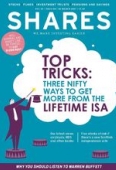Archived article
Please note that tax, investment, pension and ISA rules can change and the information and any views contained in this article may now be inaccurate.
Funds to play emerging markets recovery

Emerging markets enjoyed a significant comeback in 2016, despite a pullback towards the end of the year. The outlook remains equally exciting, so let’s look at the key drivers and some of the investment trusts that provide exposure to this region.
The MSCI Emerging Markets Net Total Return Index increased by 32.6% in sterling terms during 2016. That’s the first year of outperformance relative to developed markets since 2012.
Jan Dehn, head of research at Ashmore (ASHM), suggests the World Bank is being too conservative by estimating that emerging market countries will, on average, grow more than 3% faster than developed economies in the next three years.
‘So far emerging market countries have been able to retake the global growth initiative mainly on the back of extremely competitive real exchange rates. Commodity prices have merely stabilised and emerging market countries have certainty not experienced sustained positive capital inflows yet,’ he says.
Dehn gives three reasons why these conditions are likely to change in ways that will be supportive for growth in the region.
1. Emerging markets (EM) should benefit from a gentle upswing in commodity prices as developed economies stimulate fiscally and EM countries continue to accelerate.
2. Falling real interest rates in EM will support growth as central banks should cut rates from extremely high real levels.
3. Capital flows to EM should resume in a gentle fashion on the back of clear outperformance of EM fixed income and equity markets compared to developed markets.
‘In addition, many EM countries should be able to grow faster due to the serious reforms they have undertaken in recent years, especially in Latin America. These factors have most likely not yet been factored into World Bank and other projections for EM growth in the years ahead,’ he concludes.
Which investment trusts should I buy?
Emerging markets-themed investment trusts currently trade on a 10.6% average discount to net asset value.
Trading on a 13.3% discount is JP Morgan Emerging Markets (JMG). Portfolio manager Austin Forey comments: ‘So far this year we’ve seen further progress by emerging markets, supported by some signs of economic progress as well as recovery in commodity markets.
‘Despite political uncertainty, valuations are reasonable and the long term case for emerging markets remains solid.
‘We have a collection of strong and in many cases outstanding businesses in the portfolio; in general they have continued to deliver good results in the last six months. We maintain our focus on finding companies with sustainable competitive advantage, consistent cash flow generation, and strong management teams.’
Forey says one long-term holding embodying these characteristics is Taiwan Semiconductor Manufacturing Co. The chipmaker reported better-than-expected fourth quarter earnings as demand for high-end microchips outpaced forecasts, led by strong demand for components of Apple’s iPhone.
‘Additionally we view the company as having strong governance and aligning themselves well with minority shareholders.’
The Terry Smith method
Trading at a modest 0.9% discount to net asset value is Fundsmith Emerging Equities (FEET). Steered by highly respected fund manager Terry Smith, the trust focuses on quality consumer stocks which should benefit from the rise of the consuming class in developing economies.
Smith buys businesses with defensible and strong market positions, typically derived from brands, trademarks and distribution networks.
He wants relatively predictable revenues, high returns on capital and the ability to deliver compound growth in shareholder value over time.
Holdings include India-based Godrej Consumer Products, soymilk, tea and juice maker Vitasoy and Sao Paolo-listed drugs maker Hypermarcas.
Plenty of bargains
Other trusts trading at steep discounts include Ashmore Global Opportunities (AGOL) and Utilico Emerging Markets (UEM).
We’d also suggest you look at Templeton Emerging Markets (TEM), managed by Carlos Hardenberg with the help of Hong Kong-based emerging markets trailblazer Mark Mobius.
Known for its focus on value, bottom-up research and long-term investing, Templeton Emerging Market’s main holdings include Brilliance China Automotive, the maker and seller of BMW vehicles in China; Chinese internet services giant Tencent; and South African media monolith Naspers.
Seeking consistent returns
Also on a wide discount is the Aberdeen Emerging Markets Investment Company (AEMC), whose managers Andrew Lister and Bernard Moody seek consistent returns from a portfolio of emerging market funds.
Moody seems confident there is significant value to be realised from discounts on his holdings if there is a sustained recovery in emerging markets. ‘Our view on emerging markets is reasonably positive, as a number of big negative factors have abated,’ says Moody, adding ‘relative valuations stack up pretty well versus developed markets.’
Portfolio positions include Weiss Korea Opportunity Fund (WKOF:AIM), which invests primarily in listed preferred shares issued by South Korean companies. In many cases these trade at a discount to the corresponding common shares of the same companies.
Moody is also keen on the underlying assets held in Fidelity China Special Situations (FCSS), the Dale Nicholls-managed trust with a focus on private companies in ‘new economy’ areas. An early backer of Alibaba, the trust has increased its holdings in undervalued state-owned enterprises which have attractive assets. (JC)
Important information:
These articles are provided by Shares magazine which is published by AJ Bell Media, a part of AJ Bell. Shares is not written by AJ Bell.
Shares is provided for your general information and use and is not a personal recommendation to invest. It is not intended to be relied upon by you in making or not making any investment decisions. The investments referred to in these articles will not be suitable for all investors. If in doubt please seek appropriate independent financial advice.
Investors acting on the information in these articles do so at their own risk and AJ Bell Media and its staff do not accept liability for losses suffered by investors as a result of their investment decisions.
Issue contents
Big News
Editor's View
Great Ideas Update
Investment Trusts
Larger Companies
Smaller Companies
Story In Numbers
- £24.3bn: Personal pension contributions break new record
- 15.7% jump in UK remortgage approvals in January
- Real Estate Investment Trusts
- FTSE All-Share Sectors
- 66%: Potential jump in IMI’s 2017 earnings per share
- 24%: US worst offender for cyber-attacks
- $6.47bn: Warren Buffett’s costly mistake
- 10 years: First dividend growth in a decade from Intu

 magazine
magazine









